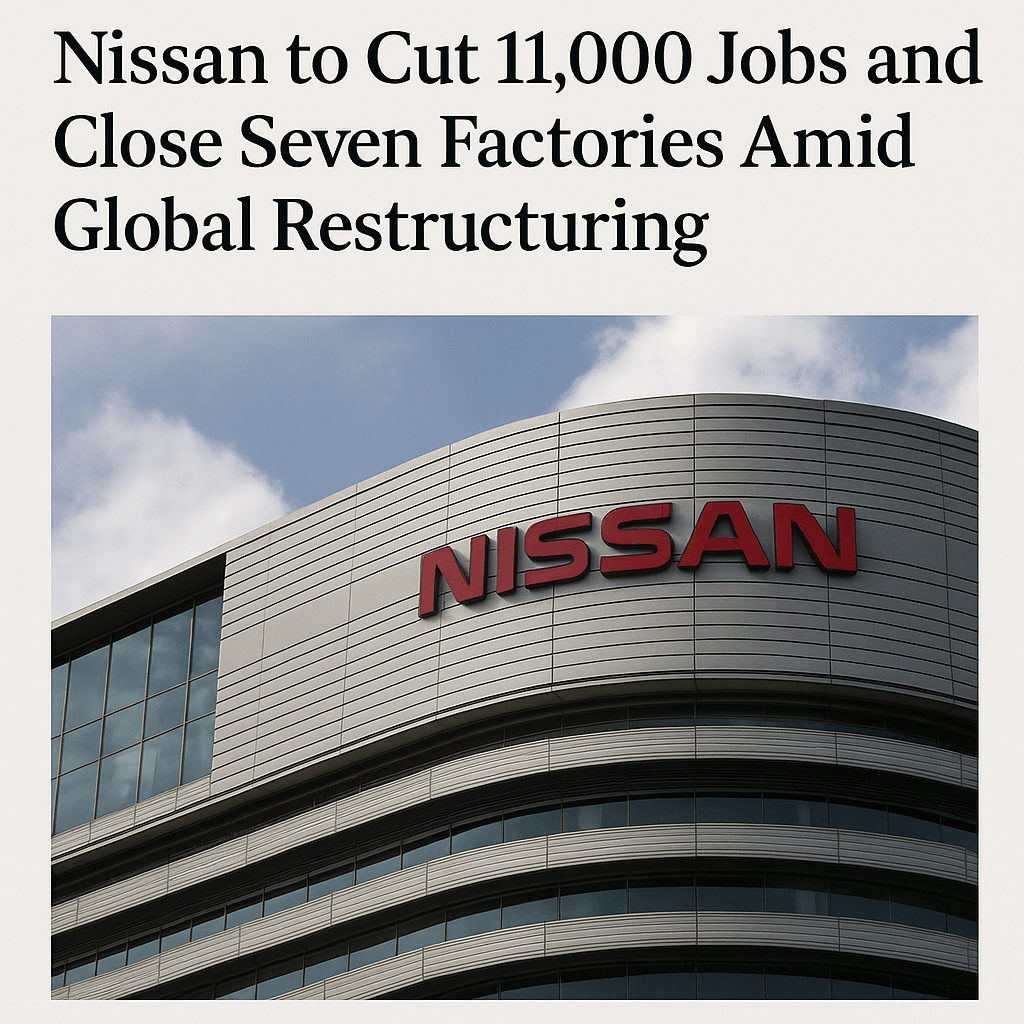Nissan shut seven factories
Japanese automaker Nissan has announced it will slash an additional 11,000 jobs globally and shutter seven production facilities as part of a sweeping overhaul aimed at stabilizing the company amid slumping sales and market challenges in key regions.
This latest move brings the total number of job cuts by Nissan in the past year to 20,000, representing 15% of its global workforce. The restructuring effort follows a collapse in merger talks with Honda and Mitsubishi earlier this year, as well as continued struggles in China and the United States—two of the company’s largest markets.
Weak Sales and Market Pressures
Sales in China, the world’s largest car market, have been declining due to fierce competition from domestic manufacturers such as BYD. Meanwhile, in the United States, heavy discounting and waning consumer demand amid high inflation and rising interest rates have eroded profits.
Nissan also recorded a ¥670 billion ($4.5 billion; £3.4 billion) annual loss, with added strain from U.S. tariffs imposed during the Trump administration. The company declined to issue a profit forecast for the upcoming year, citing the “uncertain nature” of tariff policies.

Factory Closures and Job Cuts
While the exact locations of the job cuts and plant closures have not been disclosed, two-thirds of the layoffs are expected to impact manufacturing jobs, with the remainder affecting roles in sales, administration, research, and contract staffing, according to Nissan’s new Chief Executive Ivan Espinosa.
It remains unclear whether the firm’s Sunderland plant in the UK, which employs around 6,000 workers, will be affected.
These cuts follow a previous round of 9,000 layoffs announced in November, when the company revealed plans to reduce global production capacity by 20% to align with falling demand.
Failed Merger and Executive Shake-up
In February, hopes for a major industry shake-up were dashed when Nissan’s proposed multi-billion-dollar merger with Honda and Mitsubishi collapsed. The merger would have created the world’s fourth-largest carmaker by volume, behind Toyota, Volkswagen, and Hyundai.
The failed negotiations led to the departure of then-CEO Makoto Uchida, who was replaced by Espinosa, previously the firm’s chief planning officer and head of motorsports.
Future Strategy and EV Setbacks
Amid mounting financial pressure, Nissan recently abandoned plans to build a new battery and electric vehicle plant in Japan, dialing back investment in future technologies despite the global shift toward EVs.
The company’s retreat highlights the difficulty faced by traditional automakers in keeping up with rapidly growing EV leaders, particularly in China, where domestic brands have surged ahead thanks to better market positioning and early adoption of EV trends.
“A Wake-Up Call”
Addressing the company’s difficult year, Espinosa described the results as a “wake-up call.” He acknowledged rising costs, global uncertainty, and fierce competition as significant obstacles, but expressed determination to steer the company back to stability.
“We are making tough decisions now to secure Nissan’s long-term future,” he said.
As Nissan begins its latest round of restructuring, the company faces a pivotal moment in redefining its strategy and recovering its footing in an increasingly competitive global auto industry.





